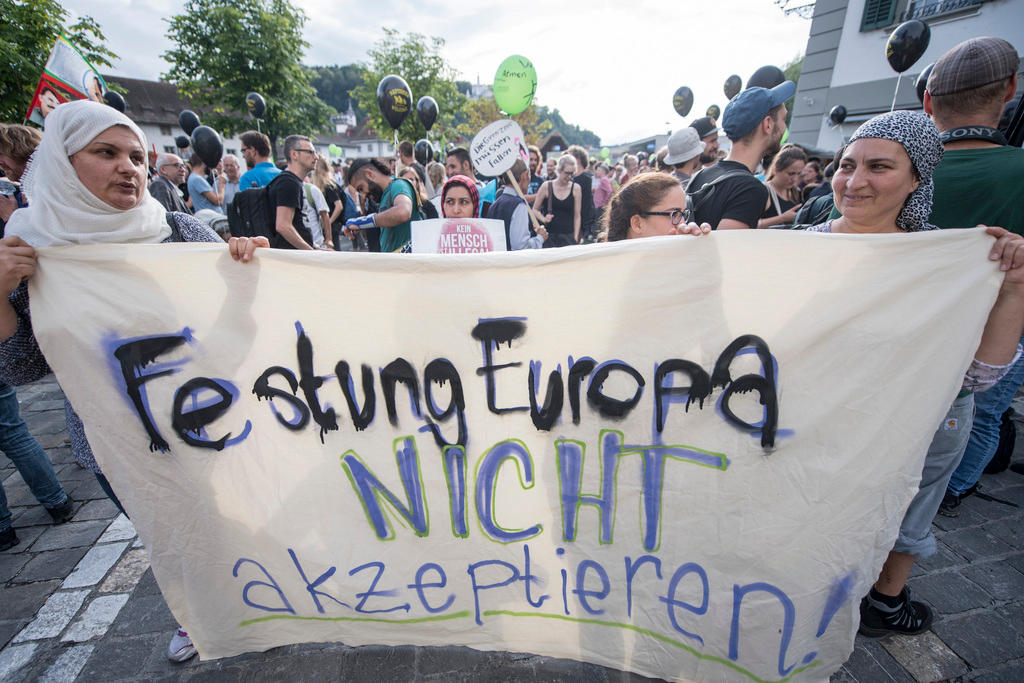
Swiss warming up to refugees, survey finds

The attitude of the Swiss population towards refugees has developed positively since 2002 and intergenerational solidarity is strong in the Alpine nation.
These are the main conclusions of the latest edition of the European Social Survey, published on Thursday. The survey covered 23 European countries, including 1,525 people in Switzerland interviewed between September 2016 and February 2017.
In 2016, 36% of Swiss respondents backed a generous approach to asylum seekers, compared with only 22% in 2002. Around a third were in favour of a restrictive policy in 2016 and 29% had no opinion. In comparison, half of those questioned in 2002 were against a generous asylum policy.
The number of Swiss who believe refugees were not really threatened in their home country declined. In 2016, a third believed refugees faced real threats in their place of origin. Only a quarter found the threat claims of refugees credible in 2002. Once an asylum seeker has been formally recognized as a refugee by the authorities, 53% of the Swiss surveyed believed the person’s family should be allowed to come to Switzerland. In 2012, 56% opposed family reunification.

More
A seat at Switzerland’s table
External linkFor immigrants, a clear majority (77%) supported equal rights to social benefits in Switzerland. However, just over half felt that immigrants should have worked in Switzerland for at least one year and paid taxes before receiving social support.
The views of the Swiss population reflected solidarity with different age groups but little tolerance for the unemployed. The majority (69%) felt the government should ensure an adequate standard of living for older people, while 56% wanted to see sufficient childcare solutions for working parents.
In contrast, only 47% supported the idea that the unemployed should live adequately; 10% were opposed to the notion and the remaining 43% were undecided. However, the majority supported state programmes to help the unemployed join the workforce.
The Swiss do not support a basic universal income. According to the survey, only the Norwegians were more strongly opposed to this than the Swiss.
Young and old in solidarity
The survey also found intergeneration solidarity to be strong in Switzerland. In the 15-34 age bracket, three-quarters of those polled were convinced that the state should guarantee an adequate standard of living for the elderly. Most in this younger generation favoured stronger childcare provision outside the family (67%).
The over-65 also supported the strengthening of childcare and the securing of a livelihood in old age, but to a lesser extent.
The Swiss Centre of Expertise in the Social Sciences and the University of Lausanne are responsible for the Swiss component of the European Social Survey. Since 2002, the survey has been conducted every two years with a representative sample of people over 15 years of age. Solidarity and the welfare state was one of the focal points in 2016.

In compliance with the JTI standards
More: SWI swissinfo.ch certified by the Journalism Trust Initiative




























You can find an overview of ongoing debates with our journalists here . Please join us!
If you want to start a conversation about a topic raised in this article or want to report factual errors, email us at english@swissinfo.ch.